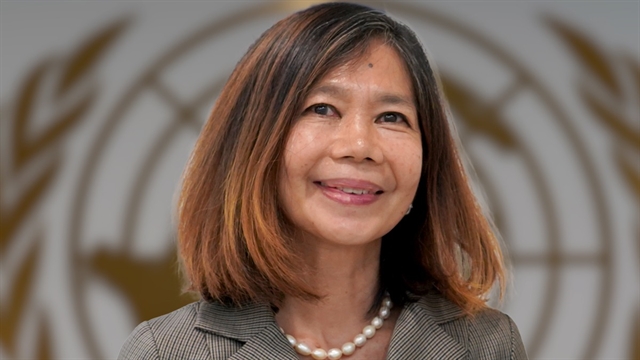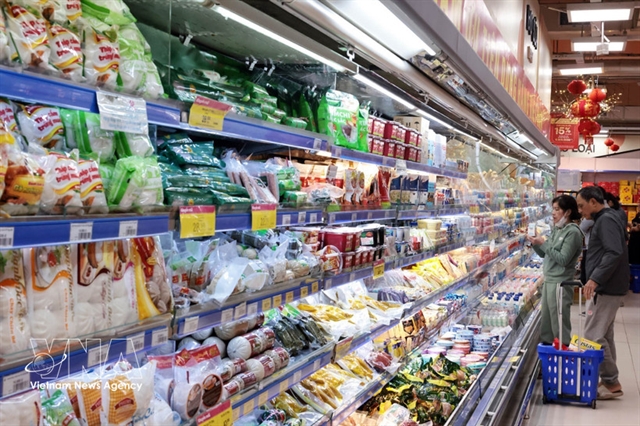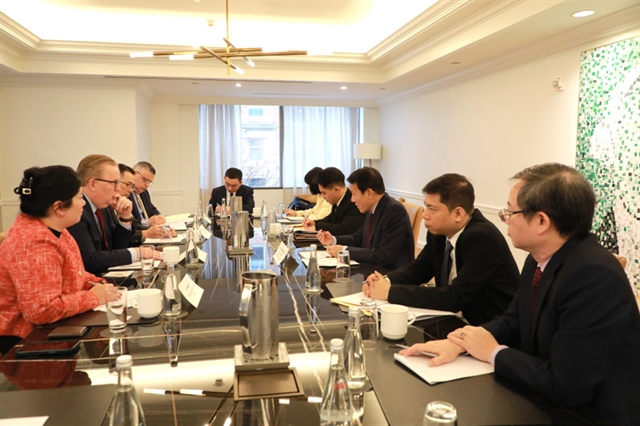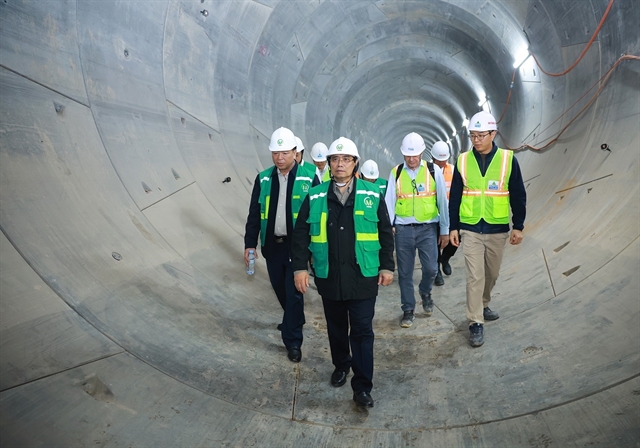 Op-Ed
Op-Ed

 |
| Pauline Tamesis, UN Resident Coordinator in Việt Nam. Photo courtesy of UN |
*Pauline Tamesis
Every year, we celebrate Human Rights Day on 10 December. This year is a special celebration as we mark the 75th anniversary of the Universal Declaration of Human Rights (UDHR).
"All human beings are born free and equal in dignity and rights" – this iconic opening sentence of the Declaration – resonates as loudly today as 75 years ago. On this day, we solemnly reflect on the historic journey of humankind towards the noble goals enshrined in the Universal Declaration of Human Rights, and the continuing struggle for equality, fundamental freedoms, and justice for all across the globe.
For three-quarters of a century, the Declaration kept a focus on the perpetual rights of all human beings as inalienable and universal, transcending borders, cultures, and ideologies. The Declaration has stood as a beacon of hope, enshrining the rights of all human beings, and serving as a global blueprint for laws and policies. It has been a bedrock of the 2030 Agenda for Sustainable Development and the SDGs, embodying the international community's commitment to building a world where every individual enjoys their inherent rights.
Today, the world is at a crossroads, facing a myriad of challenges. Conflicts persist, poverty and hunger are on the rise, and inequalities deepen. The climate crisis, now recognised as a human rights crisis, disproportionately affects the most vulnerable populations. Authoritarianism is ascendant, civic space is shrinking, and the media faces unprecedented threats. Gender equality remains elusive, and women's reproductive rights are under siege.
Việt Nam, like many nations, grapples with its unique set of human rights challenges. The country stands at a critical point in its journey towards a more equitable and inclusive society. Acknowledging its successes is crucial, and by all accounts, Việt Nam has made significant strides, especially in poverty reduction and the eradication of hunger. As a rapidly growing middle-income country, poverty reduction has been uneven across population groups and regions.
Stark numbers underscore some persisting challenges, particularly in ethnic groups communities. Despite accounting for just 15 per cent of the population, the ethnic groups comprise more than 50 per cent of the country’s poor. The national multi-dimensional poverty rate, which stood at 3.6 per cent in 2022, is however highly concentrated among ethnic minorities. Multi-dimensional poverty rates in the Central Highlands, Mekong River Delta, and Northern Mountainous and Midland regions, where most ethnic minorities live, are the highest and about double the national average. These figures reveal an urgent need to address disparities that linger within the fabric of society, emphasising the imperative to ensure that the benefits of progress reach every corner of the nation.
Việt Nam's membership in the Human Rights Council for the 2023-2025 term is both a great responsibility and an important opportunity. The country's commitment to upholding its obligations under international human rights treaties, having ratified seven out of nine core human rights instruments, is a positive step. It is encouraging to see a commitment to addressing the root causes of disparities, acknowledging that promoting and respecting human rights encompasses not only civil and political rights but also economic, social, and cultural rights. In this regard, the recent visit of the Special Rapporteur on the right to development to Việt Nam last month was a timely engagement. At the end of his visit, the Special Rapporteur highlighted that, “to ensure sustainable development, the Government would need to do more to respond to the triple planetary crisis of climate change, environmental pollution and biodiversity loss. Genuinely participatory approaches to development – which integrate principles of intersectionality, intergenerational equity, fair distribution and self-determination – should be adopted to achieve a just transition to a green economy.”
The global context adds urgency to these endeavours. The Secretary-General's call to strengthen commitment to the timeless values of the Universal Declaration of Human Rights resonates deeply. It is a call not only for governments but also for individuals, communities, and nations to ensure that human rights are at the forefront of our collective efforts.
Human Rights Day 2023 is not just a celebration; it is a clarion call for a renewed commitment to the principles that bind us together as a global community. As we look ahead to the Summit of the Future next year, and to an era where global frameworks are being updated to meet the challenges of the 21st century, human rights must occupy a central place. This clarion call is echoed in the UN Secretary General’s message for this year’s special celebrations, “on Human Rights Day, I urge people around the world to promote and respect human rights, every day, for everyone, everywhere.” VNS
*Pauline Tamesis is the UN Resident Coordinator in Việt Nam




